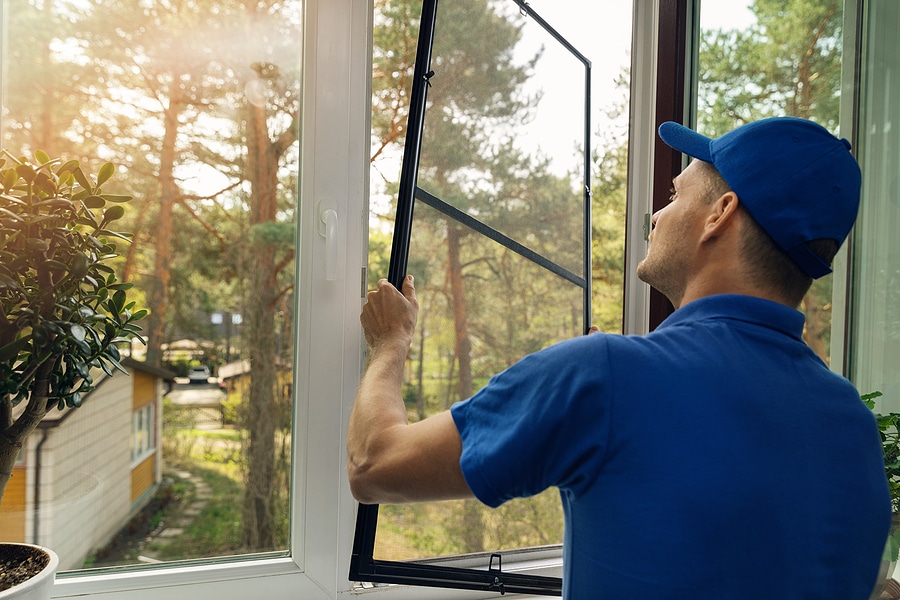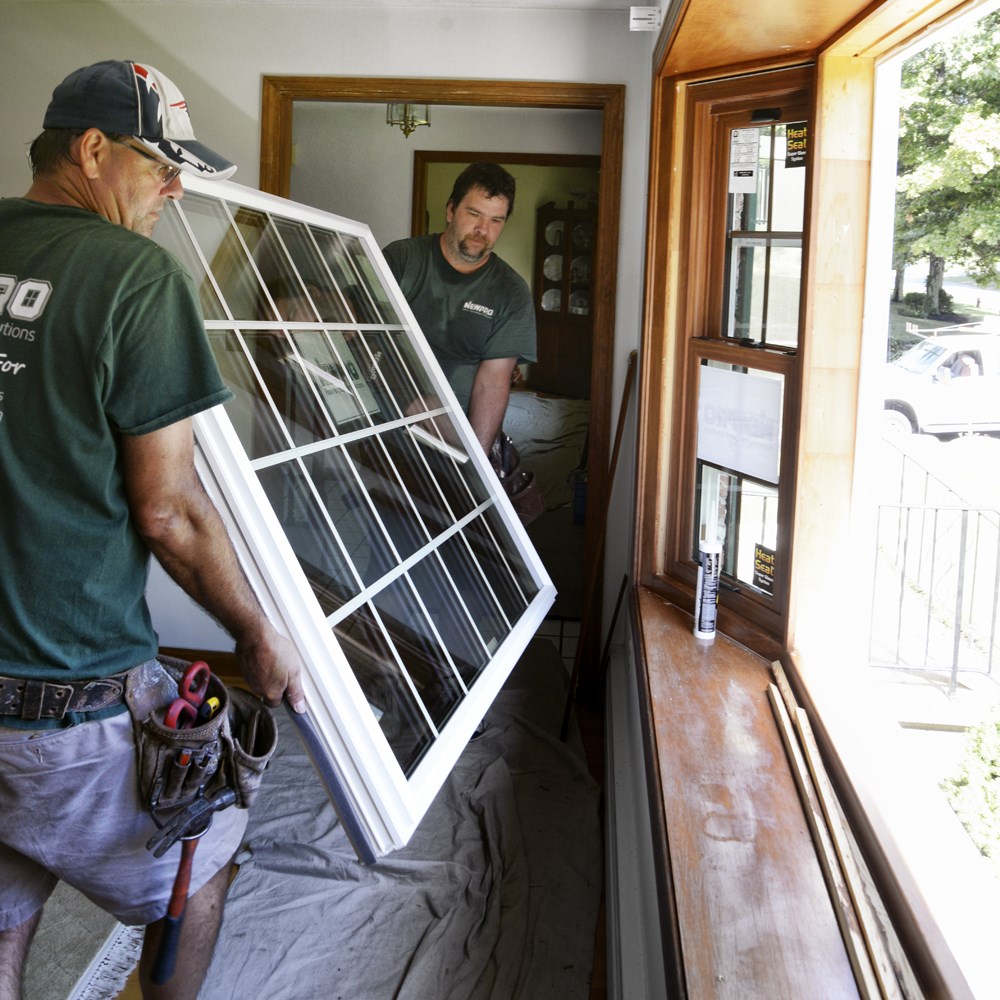The Complete Overview to Window Replacement: Recognizing When It's Time for a Change in Your Home
When to change windows can considerably influence a home's comfort and performance, recognizing. Home owners usually ignore refined signs of damage, such as drafts or condensation. Understanding these signs and the benefits of brand-new windows is important. Furthermore, knowledge of different window kinds can direct choices. As the process unfolds, many questions occur. What should one anticipate during installment? Discovering these variables can result in a much more informed choice.
Indications You Need to Change Your Windows
How can a house owner tell when it's time to replace their windows? There are a number of clear indicators showing that substitute is needed. To start with, noticeable damages such as fractures, chips, or warping can compromise window honesty. Home owners need to additionally look for drafts or visible temperature changes near the windows, recommending bad insulation. Another sign is condensation build-up in between window panes, which can indicate seal failure. If windows are tough to shut or open up, this may indicate structural problems. Furthermore, fading or staining of interior home furnishings might recommend poor UV defense. Lastly, a rise in power expenses can show that old, inefficient windows are no longer executing effectively. Identifying these indicators early can help homeowners make educated choices about window substitute, guaranteeing their home stays comfortable and energy-efficient.

Benefits of Window Replacement
Replacing windows provides many advantages that can significantly enhance a home's functionality and visual appeals. One significant benefit is improved power effectiveness, as modern windows commonly feature advanced insulation innovations that help reduce heating & cooling prices (Replacement Windows). This not just decreases utility bills but also lowers the home's carbon footprint
Additionally, new windows can boost the overall look of a property, improving curb allure and potentially boosting its market value. Home owners frequently find that upgraded windows enable for far better natural light, producing an extra welcoming environment inside your home.
Replacement windows can enhance protection features, making it much more tough for burglars to get in. Many new window choices come with low-maintenance coatings, reducing the time and effort required for upkeep. On the whole, window substitute is a tactical investment that attends to both aesthetic and useful demands, providing lasting benefits for home owners.
Understanding Various Window Kinds

Window Frame Products
When choosing window structures, home owners experience a range of products, each offering distinctive advantages and negative aspects. Vinyl frames are popular for their affordability and low maintenance, providing excellent insulation yet restricted color choices. Timber frames emanate all-natural appeal and superb insulation yet call for normal maintenance to avoid rot and warping. Aluminum frames are known for their toughness and durability, making them perfect for modern designs, yet they perform cold and heat, which can influence energy efficiency. Fiberglass frameworks offer an equilibrium in between resilience and power performance, withstanding warping and fading over time. Ultimately, the selection of window structure material should straighten with the house owner's aesthetic preferences, budget, and long-term upkeep strategies to assure a suitable suitable for their home.
Power Efficiency Scores
Energy efficiency scores play a vital role in the choice of windows, as they directly influence a home's comfort and utility expenses. These ratings, normally offered by companies such as the National Fenestration Ranking Council (NFRC), examine various efficiency elements, consisting of U-factor, solar warm gain coefficient (SHGC), and noticeable transmittance (VT) The U-factor measures the price of warm transfer, indicating insulation effectiveness; a reduced worth represents far better energy performance. SHGC evaluates exactly how much solar warmth enters via the window, with reduced values being more suitable in hotter environments. VT reflects the amount of natural light transmitted, balancing energy effectiveness with illumination requirements. Comprehending these rankings aids property owners make notified decisions when replacing windows, making certain ideal energy performance.
Styles and Designs
Various window styles designs significantly influence both the looks and capability of a home. Property owners can pick from a selection of alternatives, each offering distinctive features. Double-hung windows provide comfort and air flow, while casement windows use unhampered sights and improved energy effectiveness. Photo windows develop a dramatic focal point and optimize all-natural light, whereas moving windows are optimal for contemporary spaces with restricted outside access. Bay and bow windows expand exterior, adding architectural rate of interest and space. Furthermore, specialty windows, like arched or round-top designs, can present one-of-a-kind flair. Ultimately, selecting the ideal style guarantees that the windows not just match the home's overall layout but also meet details practical needs, enhancing both appeal and performance.
Energy Efficiency and Your Windows
While several home owners may overlook the influence of windows on energy intake, these crucial parts play a crucial function in keeping a comfy indoor environment. Energy-efficient windows are designed to lessen heat transfer, reducing the power required for heating and cooling. They normally feature numerous panes, low-emissivity (Low-E) finishes, and gas loads, which improve insulation residential or commercial properties.
Selecting the appropriate windows can result in significant cost savings on energy expenses, along with a decreased carbon impact. Homeowners should take into consideration the U-factor and Solar Heat Gain Coefficient (SHGC) rankings, as these metrics show a window's power efficiency. Proper installation is similarly vital; even the most efficient window can underperform if not set up appropriately.
Normal upkeep, such as looking for drafts and resealing, can also enhance energy effectiveness. Window Installers. Eventually, buying energy-efficient windows not just adds to comfort but likewise enhances the total sustainability of the home
Picking the Right Window Design for Your Home

Additionally, building style plays a crucial duty in this decision. Craftsman homes may take advantage of divided-light windows, while contemporary layouts often prefer large, extensive panes. Shade and product selections, including light weight aluminum, plastic, or timber, likewise affect both appearance and maintenance requirements. Eventually, the right window style not only improves the visual appeal but also contributes to the home's total power efficiency, making sure both comfort and an appealing exterior for years to come.
The Window Replacement Refine: What to Anticipate
The window replacement process includes a number of essential steps that homeowners should recognize. An assessment is conducted to establish the ideal windows for the room, followed by the critical installment day. Comprehending these stages can assist guarantee a smooth transition and sufficient results.
Preliminary Assessment Tips
How can homeowners successfully get ready for a home window replacement? The first analysis actions are vital for an effective project. They need to examine the current condition of their windows, noting any kind of indications of damage, leaks, or inefficiency. Next off, measuring the dimensions of each window find this structure properly is essential for selecting the ideal substitutes. Property owners need to also think about the building style of their home, as this will affect their selections. In addition, they need to analyze their spending plan, determining just how much they agree to purchase the new windows. Investigating regional service providers can provide insights right into the installment procedure, making certain home owners are educated prior to making any kind of choices. These actions lay a solid structure for a smooth window replacement journey.
Choosing the Right Windows
When house owners begin on the journey of window replacement, they have to thoroughly consider various elements to guarantee they choose the best windows for their needs. Trick factors to consider include the window style, product, power effectiveness, and budget plan. Different designs, such as double-hung, casement, or gliding windows, use special appearances and performance. The option of materials, like vinyl, timber, or fiberglass, impacts longevity and upkeep. Energy performance scores, such as U-factor and Solar Heat Gain Coefficient, play an essential duty in long-lasting cost savings and comfort. In addition, house owners should review their budget plan, balancing high quality and affordability. Consulting with specialists can give referrals and insights customized to individual preferences and home needs, making sure a well-informed decision.
Setup Day Process
On setup day, home owners can expect a well-coordinated procedure that changes their space. Professional installers normally arrive early, outfitted with the needed devices and products. They start by preparing the work area, guaranteeing look at this web-site furniture and personal belongings are shielded. Each window is meticulously gotten rid of, with interest paid to the bordering framework to stop damages. New windows are then set up, ensuring proper sealing and insulation to improve power performance. The team performs a complete inspection to confirm that each window runs efficiently. Ultimately, they tidy up the site, removing debris and old materials. Home owners are encouraged to ask questions and receive support on upkeep, guaranteeing a smooth shift to their newly upgraded windows.
Frequently Asked Concerns
The length of time Does a Regular Window Replacement Task Take?
A regular window substitute task usually takes one to 2 days, relying on variables such as the variety of windows being changed, the intricacy of the installment, and climate condition impacting the timeline.
What Is the Typical Expense of Window Replacement?
The average cost of window substitute typically varies from $300 to $1,000 per window, relying on variables such as products, size, and installation complexity. Home owners need to take into consideration these variables when budgeting for the job.
Can I Replace Windows Myself or Work With a Specialist?
Individuals can replace windows themselves if they have enough skills and tools; nonetheless, employing a professional is frequently recommended for excellent outcomes, guaranteeing proper installment, power effectiveness, and conformity with regional building ordinance.
Are There Any Kind Of Regional Regulations for Window Replacement?
Neighborhood policies for window substitute vary by municipality and might include permits, zoning legislations, and safety criteria. Property owners should consult local authorities to validate compliance before waging any type of window substitute project.
What Service Warranties Are Usually Offered on New Windows?
Normally, warranties for new windows include restricted lifetime coverage on products and efficiency, in addition to particular terms for labor. Suppliers might additionally offer varying periods for glass breakage and weatherproofing, depending on the item.
Double-hung windows provide comfort and air flow, while casement windows provide unhampered sights and boosted energy effectiveness. Photo windows produce a significant focal factor and optimize all-natural light, whereas gliding windows are perfect for modern spaces with restricted outside accessibility. Double-hung windows continue reading this give traditional charm and exceptional air flow, while casement windows, hinged at the side, offer unblocked sights and premium air movement. When homeowners commence on the journey of window replacement, they should thoroughly take into consideration numerous factors to guarantee they choose the best windows for their needs. The typical expense of window replacement usually ranges from $300 to $1,000 per window, depending on variables such as materials, size, and installment intricacy.